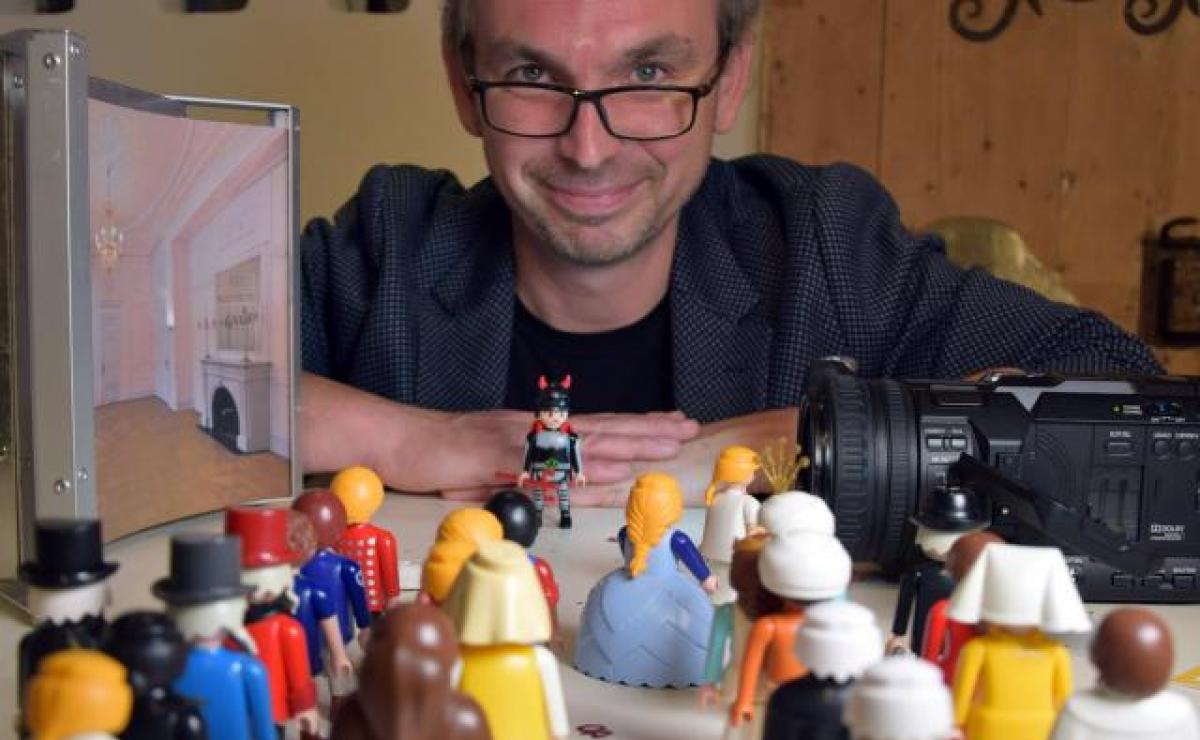Presenting the Bible with Playmobil

YouTuber launches new "Bible to go" series in 66 episodes
(LWI) - It might appear like a child's play at first sight: using Playmobil figures to tell biblical stories in video format. But the German author, director, dramaturg, and literary scholar Michael Sommer strikes a nerve with this combination of toy figures, humorous narrative, and serious content aimed at an older audience.
In the new series "Bible to go", one biblical book is summarized in an approximately ten-minute video. Starting at the beginning of October, a new episode is published on the Protestant news portal evangelisch.de every Tuesday. Sommer will present the entire Bible in sixty-six videos in just over a year.
Sommer puts together the ensemble for each episode from a collection of about 1,500 Playmobil figures. Some figures he casts "historically", such as the Pharaoh of Egypt. However, Noah comes along as a lumberjack - after all, he has an ark to build.
Avoiding clichés
"I try to select a composition that is as diverse as possible, for example, in terms of skin color, to represent as many people as possible," Sommer explains. He wants to avoid overly clichéd representations. "This is also the reason for the possibly strange appearance of God in my videos," Sommer says.
He wants to take "a fresh look" at the biblical stories and encourage people to do the same. Preparing for this project, he read the Bible "from cover to cover". In some instances, the texts are clear and concise, in others "irritating", so that Sommer finds himself asking "what God possibly had in mind". To keep to the length of about ten minutes, he must also decide what the primary statements are for each biblical book.
According to Sommer, the Bible is "a very heterogeneous book", requiring extensive engagement with its content and text types. This discernment process "keeps the texts alive," he concludes. The video series itself is also an invitation to engage: "If people are irritated by one of the videos, then take the Bible, read the texts themselves and perhaps even talk to someone about them, I am happy. Then the goal is reached."
“One of the greatest achievements of the Reformation was the translation of the Bible in the national languages,” says The Lutheran World Federation’s (LWF) Regional Secretary for Europe, Ireneusz Lukas. “Everyone was encouraged to read and reflect on biblical texts.” Today, when many people use the internet as a learning platform, new forms of learning about the Bible are needed. “Ten-minute films with Playmobil characters do not replace reading the Bible, but they can certainly bring Bible stories closer to people and encourage them to learn more about them,” says Lukas. “In this sense, ‘Bible to go’ fits well with the Reformation tradition of bringing the Word of God to every person.”
World literature as a starting point
Michael Sommer's bible project complements his YouTube channel "Sommers Weltliteratur to go" (World Literature to go). He used the same “actors” and procedure for this project as he did for “Bible to go” and received the Grimme Online Award in 2018. So far, he has summarized one work of world literature there once a week - as help for pupils and students and generally to whet the audience's appetite for reading.
With "Bibel to go", he is now one of 19 different presenters on yeet.de and the various formats and associated social media platforms featuring Protestant Christian content.
Sommer’s videos are published on evangelisch.de, a website run by the Gemeinschaftswerk der Evangelischen Publizistik (GEP). The GEP, headquartered in Frankfurt am Main. It is the central media enterprise of the Evangelical Church in Germany (EKD), of its member churches (which also include the 11 in German member churches of the Lutheran World Federation), works, and institutions.
